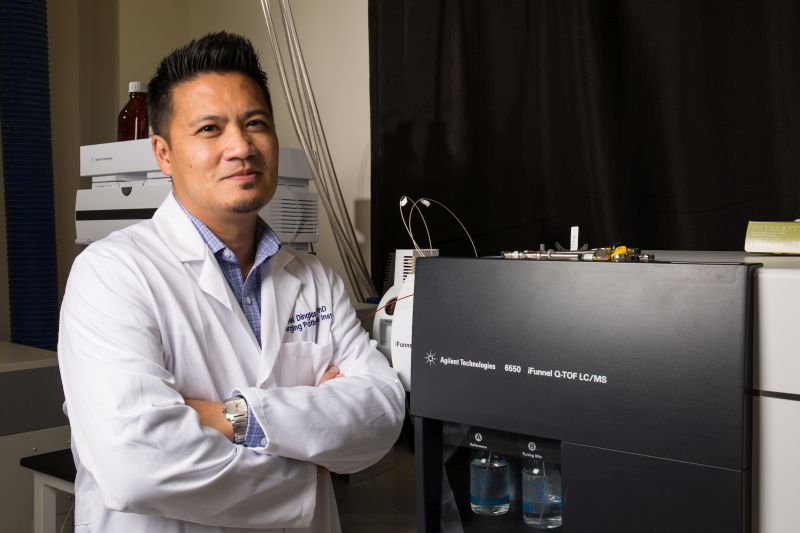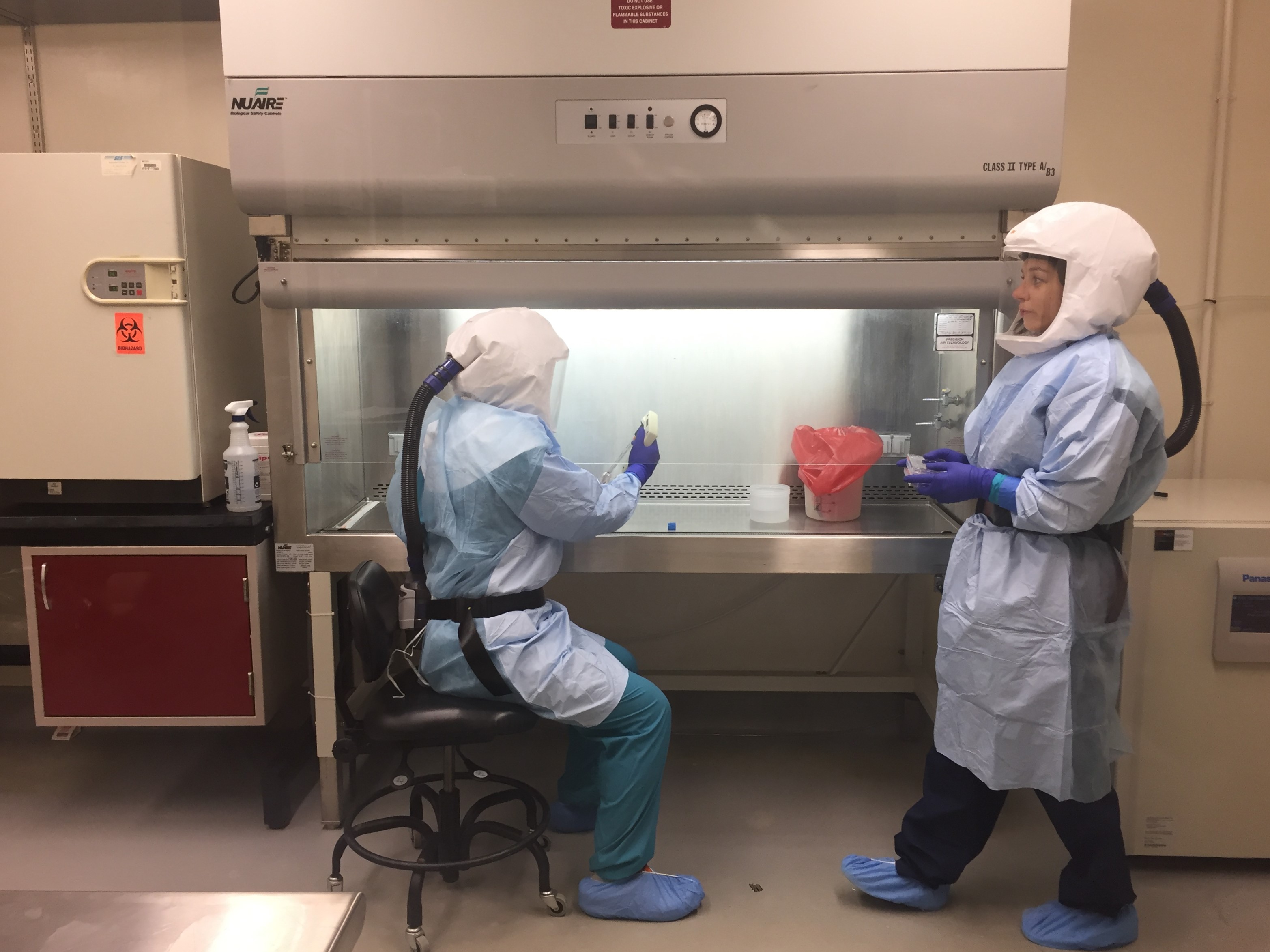College involved in new $10 million center to address Zika and other diseases

Dr. Rhoel Dinglasan is shown in his laboratory at UF’s Emerging Pathogens Institute. Dinglasan joined the UF College of Veterinary Medicine’s faculty in 2016 through the university’s preeminence initiative. (Photo by Hannah Pietrick)
With a $10 million grant from the Centers for Disease Control and Prevention, the University of Florida will lead a highly collaborative research program focused on stopping vector-borne diseases such as Zika before they spread farther into the United States.
Four state universities will be involved in the new Southeast Regional Center of Excellence in Vector-Borne Disease: The Gateway Program. Rhoel Dinglasan, Ph.D., a new faculty member in the UF College of Veterinary Medicine’s department of infectious diseases and pathology hired through the university’s preeminence initiative, is the program’s lead investigator.
Other faculty from the college will be involved as well, including Maureen Long, D.V.M., Ph.D., a professor of infectious diseases, whose laboratory will serve as the program’s main diagnostic facility. As such, Long’s lab will provide testing through the grant for Zika, dengue and West Nile virus, in addition to screening for Eastern Equine Encephalitis.

Dr. Maureen Long’s laboratory will serve as the core diagnostic facility for the new center. Long is shown at left. (Photo courtesy of Evan Barton)
John Dame, Ph.D., a professor and chairman of the college’s department of infectious diseases and pathology, will serve on the center’s management team, as will Glenn Morris, M.D., director of UF’s Emerging Pathogens Institute. Other UF faculty members, including experts in medical geography from the department of geography, will participate as well.
Dinglasan enlisted collaborators from the University of Miami, Florida International University and the University of South Florida to work closely with him and the other UF scientists to address the statewide and regional challenge of Zika and other diseases.
“While everyone is imagining the introduction of diseases like Zika into their states, we don’t need to imagine it,” Dinglasan said. “We have seen Zika, dengue and chikungunya, and it is our responsibility as scientists to do our part to stop them.”
Florida provides a unique environment to examine the biocomplexity of vector-borne diseases in real time. Miami-Dade is often an entry point for such diseases, adding to the urgency of the research and providing a real-world lab. Solutions that work in the densely populated urban environment of South Florida should work in other locations as well, Dinglasan said.
“Florida really is ground zero. We are the gateway for vector-borne diseases into the United States,” Dinglasan said. “But we have the research capability to stop them.”
The new center will be located at UF’s Emerging Pathogens Institute.
The grant is part of nearly $184 million in funding from the CDC to states, territories, local jurisdictions and universities to support efforts to protect Americans from Zika virus infection and associated adverse health outcomes, including microcephaly and other serious birth defects. These awards are part of the $350 million in funding provided to CDC under the Zika Response and Preparedness Appropriations Act of 2016.
“Zika continues to be a threat to pregnant women,” said CDC Director Dr. Tom Frieden. “States, territories and communities need this CDC funding to fight Zika and protect the next generation of Americans.”













